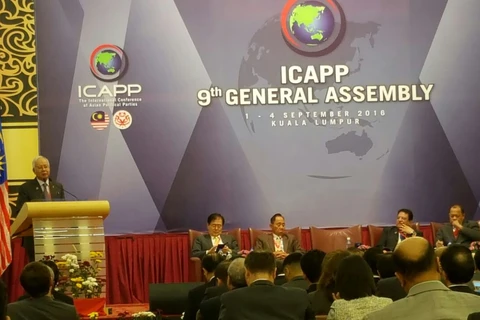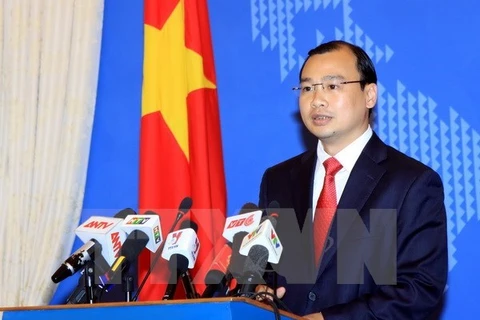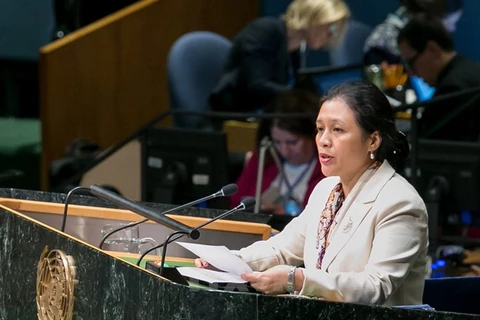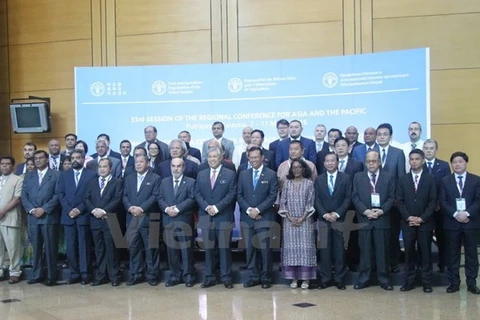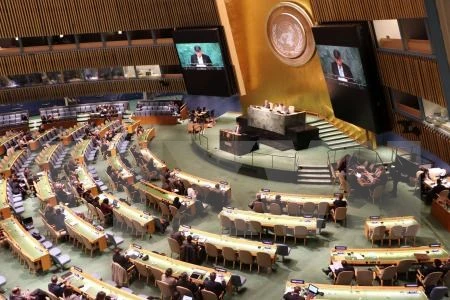New York (VNA) – The adoption of the first-ever global treaty to ban nuclear weapons at the recent United Nations conference has great historical, ethical and legal meaning, sending out an important political message reiterating the determination and aspiration of people around the world to eliminate nuclear weapons, a Vietnamese diplomat has said.
Ambassador Nguyen Phuong Nga, Permanent Representative of Vietnam to the UN, who led the Vietnamese delegation to the United Nations Conference to negotiate a legally-binding instrument to prohibit nuclear weapons, in New York from June 15 to July 7 with the participation of 130 UN member countries, told Vietnam News Agency correspondents following the signing of the treaty.
This manifested the tireless struggle carried out by the countries without nuclear weapons over the past 70 years, Nga noted.
The first-ever global treaty, which received the “yes” votes of 122 nations, prohibits all ratifying countries never under any circumstances to develop, test, produce, manufacture, otherwise acquire, possess or stockpile nuclear weapons or other nuclear explosive devices.
It also bans any transfer or use of nuclear weapons or nuclear explosive devices and the threat to use such weapons.
Under the new treaty, signatory states must agree to not allow any other countries to install or deploy nuclear weapons on their territory or areas within their jurisdiction and control, Nga said.
Particularly, the document stipulates that countries conducting tests and using nuclear weapons must support victims of affected nations and address environmental consequences, she noted.
Legally, with the adoption of this treaty, there have been so far international treaties banning all three types of weapons of mass destruction, namely nuclear weapons, chemical weapons, and biological weapons, Nga said.
This is a new progress and an important legal foundation to strengthen the nuclear weapon disarmament mechanisms towards a nuclear-free world, she said.
Vietnam has proactively and actively participated in the negotiation of the treaty, especially strengthening coordination with other ASEAN members and countries having the same viewpoints to bring important contents into the treaty such as banning the threat to use nuclear weapons and stipulating responsibilities of countries testing and using nuclear weapons for affected ones, she added. - VNA
Ambassador Nguyen Phuong Nga, Permanent Representative of Vietnam to the UN, who led the Vietnamese delegation to the United Nations Conference to negotiate a legally-binding instrument to prohibit nuclear weapons, in New York from June 15 to July 7 with the participation of 130 UN member countries, told Vietnam News Agency correspondents following the signing of the treaty.
This manifested the tireless struggle carried out by the countries without nuclear weapons over the past 70 years, Nga noted.
The first-ever global treaty, which received the “yes” votes of 122 nations, prohibits all ratifying countries never under any circumstances to develop, test, produce, manufacture, otherwise acquire, possess or stockpile nuclear weapons or other nuclear explosive devices.
It also bans any transfer or use of nuclear weapons or nuclear explosive devices and the threat to use such weapons.
Under the new treaty, signatory states must agree to not allow any other countries to install or deploy nuclear weapons on their territory or areas within their jurisdiction and control, Nga said.
Particularly, the document stipulates that countries conducting tests and using nuclear weapons must support victims of affected nations and address environmental consequences, she noted.
Legally, with the adoption of this treaty, there have been so far international treaties banning all three types of weapons of mass destruction, namely nuclear weapons, chemical weapons, and biological weapons, Nga said.
This is a new progress and an important legal foundation to strengthen the nuclear weapon disarmament mechanisms towards a nuclear-free world, she said.
Vietnam has proactively and actively participated in the negotiation of the treaty, especially strengthening coordination with other ASEAN members and countries having the same viewpoints to bring important contents into the treaty such as banning the threat to use nuclear weapons and stipulating responsibilities of countries testing and using nuclear weapons for affected ones, she added. - VNA
VNA

